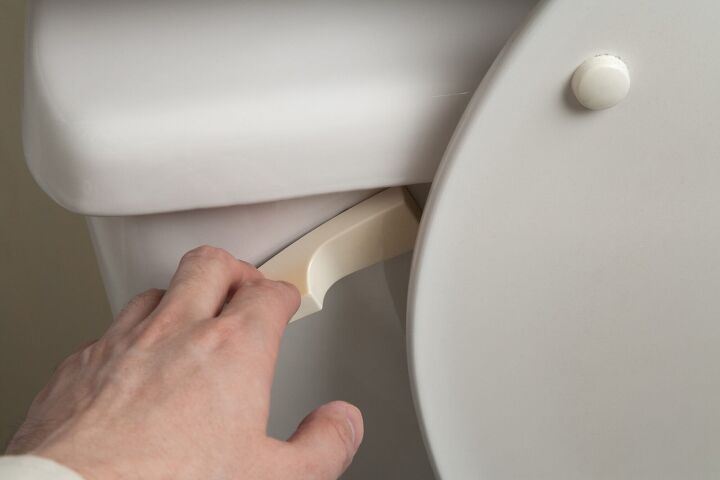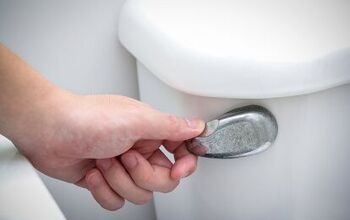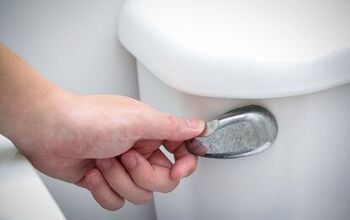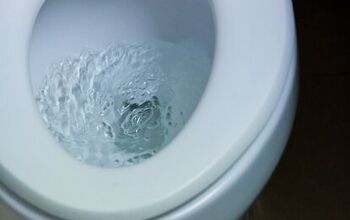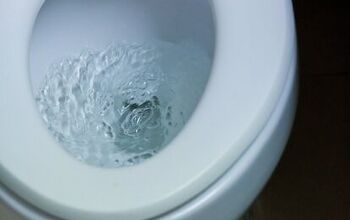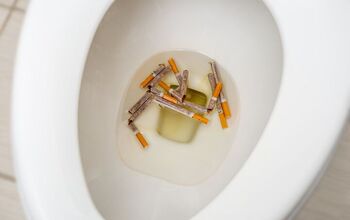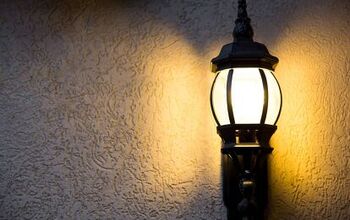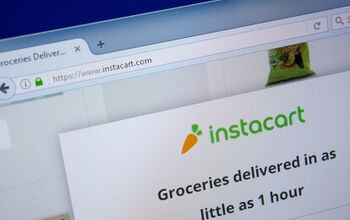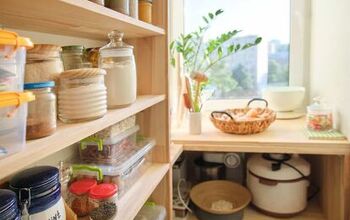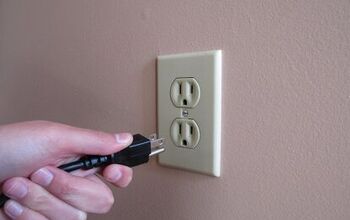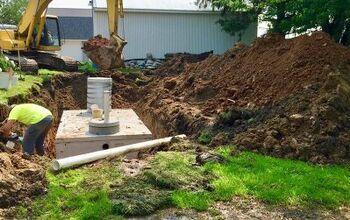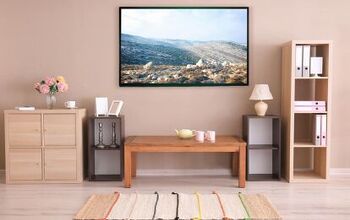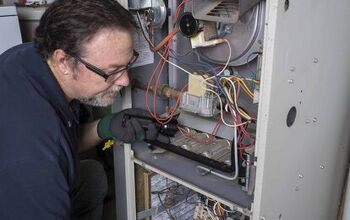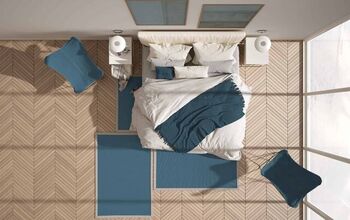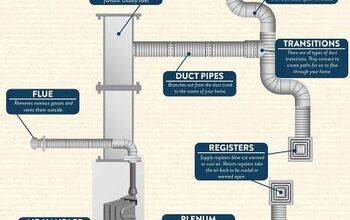Can You Flush Food Down The Toilet? (Find Out Now!)

The toilet is one of the most used fixtures in the modern home, and these fixtures are supposed to dispose of human waste in a way that’s quick, sanitary, and convenient.
In the vast majority of instances, when something is flushed down the toilet, it’s never seen again. This sometimes leads homeowners to think that the toilet can be used as a trash receptacle, capable of flushing not only human waste but common garbage.
This article will thoroughly explain why food should never be flushed down the toilet, and a list of other unflushable items is included as well. If you flush unflushable items down the toilet, a clog is inevitable.
No, food should never be flushed down the toilet. If food is flushed down the toilet, it’s quite likely a clog will be the result. But it’s not just food. You should also refrain from flushing feminine hygiene products, condoms, diapers, medical supplies, and pills. In short, the toilet should only be used for flushing human waste and toilet paper.
Can You Flush Food Down the Toilet?
The short answer is no, and this is mainly because the drain pipe that’s connected to the toilet is incapable of passing food scraps. Specifically, these drain pipes are too narrow, which means—unlike most sink drain pipes—food scraps can’t pass through them.
Flushing food down the toilet can also create a clog in the drain, and a significant clog will lead to sewerage backup and a host of other undesirable consequences. Toilets are designed to flush human waste and toilet paper, which means flushing anything else can create problems for the toilet.
Flushing a small bit of food—like an inch-long piece of bread—is not going to cripple your toilet. But making this a routine, however, will have adverse long-term effects. While flushing food down the toilet is never advisable, listed below are some foods that should absolutely never find their way into your toilet’s drain—unless, of course, they’ve been processed by your body and converted to waste.
Oils and Fats
In addition to oils and fats, any substance that gets harder as it cools should stay away from the toilet drain, including bacon grease, butter, and cooking oil. Cooking fats will harden in the sewer, and sometimes cooking fat buildup is so significant that what are known as fatbergs are formed.
These masses of cooking fat can affect entire sewer systems, and in recent years the sewer systems of a few major cities were actually shut down by these.
Food Scraps That Don’t Break Down Quickly
A lot of foods take awhile to break down, but some notable mentions are animal bones, apple cores, and corn cobs. Flushing any of these items will almost definitely result in a clog, so you shouldn’t put down this article to see if your toilet’s drain is the sole exception.
Flushing items like these, or any kind of food for that matter, can also negatively affect water treatment efforts where you live.
High-Starch Foods
Foods with high starch content will also wreak havoc on the toilet’s drain. Imagine flushing a spoonful of mashed potatoes down the toilet. The mushy spuds would be like cement going down your drain. The second the mass stops moving, it begins to harden, creating a clog that in all likelihood will be difficult to remove.
Grains
Since they absorb water and swell, rice, oats, and other grains should stay out of your toilet’s drain pipe. Flushing a bowl of oatmeal would yield the same result as flushing the mashed potatoes. While these foods seem mushy—and therefore moveable—they’re often stronger than they look, especially when dense and in a narrow space.
Do This Instead
Utilize the Refrigerator/Freezer More
Keep your leftovers in the refrigerator or freezer so they can be consumed later. Don’t be so quick to throw out food that’s less than 24 hours old.
Utilize Trash Receptacles More
When dealing with liquid foods and cooking byproducts, it’s best to dump these in a sealable plastic bag before putting them in the trash. This way, you don’t have to worry about these items harming your drain or making your trash a mess.
Start Composting
A lot of foods are compostable. Take advantage of a local composting program or create a compost pile of your own. Composting is much better than flushing, as one disposal method is good for the environment whereas the other can actually harm it.
Disposing of Smelly Food Scraps and Cooking Byproducts
Put your smelliest food scraps in the freezer—use a plastic bag, of course. Then throw them out when trash day arrives. This way you don’t have to deal with foul odors lingering.
What Items Should Never Be Put In the Toilet?
By this point, it should be clear that flushing any kind of food down the toilet is no good, but food isn’t the only thing that should stay out of the toilet drain. As was mentioned earlier, the only things that should go down the drain are toilet paper and human waste, as toilets are only capable of disposing these two items. Here are more things that should never be flushed:
- Condoms
- Pets
- Cat litter
- Diapers
- Paint and construction debris
- Medications and drug paraphernalia
When I say pets, I mean fish, but it’s true that some people try to flush snakes, lizards, dead rodents, and other small mammals. Aside from being inhumane, doing this can also damage your plumbing system quite severely.
Related Questions
What should be done if a clog is detected?
Unless the clog can be removed via plunging, it’s best to get a professional plumber to remove the clog. They have the know-how and tools required to dislodge any clog, no matter where it is in the drain pipe.
Will a toilet clog affect my other plumbing fixtures?
Yes, a toilet clog can affect your other plumbing fixtures. If your toilet is not able to drain properly, the backup will cause wastewater to exit in a location that’s not meant for it, i.e. in a tub or sink drain.

Matt loves everything DIY. He has been learning and practicing different trades since he was a kid, and he's often the first one called when a friend or family member needs a helping hand at home. Matt loves to work with wood and stone, and landscaping is by far his most favorite pastime.
More by Matthew Mountain



